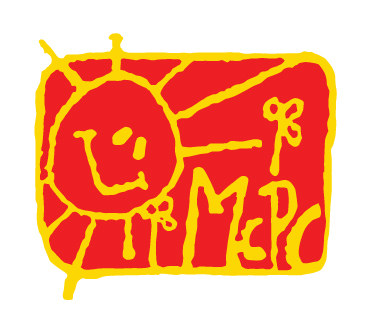Don’t Ask Them To Say ‘I’m Sorry’
Lots of play brings lots of minor conflicts!
At MCPC, all behavior is seen as communication and we believe each child is doing their best with the skills they have.
We regularly see small bits of aggression at school, which is normal for preschoolers. Incidents of hitting, pushing, and grabbing are signs that we need to help that child find another way of communicating their needs.
Getting down on their level and making a connection is part of the process
Every child needs to feel safe at school so the priority is to get to the children and stop the hurting, which sometimes involves physically separating the kids or holding one of them so they can’t hurt the other.
Once we’ve intervened, our director, Jolie, recommends the following strategy:
First, we take a second (or more if available) to calm ourselves. Aggression often triggers adults and it is much harder to help children if we are triggered! Jolie recommends taking a few deep breaths together before starting to talk.
When we do talk, we remember to connect and be curious. Questions like, ‘What's happening here?’ or, ‘I wonder if you need some help?’ can help to calm both kids and open the lines of communication.
Listen! Listening doesn't necessarily mean we agree, but we can't teach better skills if we don't understand the children’s perspectives. ‘Oh, you wanted the next turn on the slide so you hit her. Next time you can say, “I'd like a turn on the slide.”’
Help the child who was hurt.* If ever a child hurts another child, either on purpose or on accident, they need to stop and check on their friend, but we don't ask them to apologize. Check out this article to learn more about why.
Instead, we teach them to ask their friend, ‘Are you okay?’ and give the injured child a chance to respond. If the injured child says, ‘Yes, I'm okay’ we coach them to say, ‘Don't do that again’ or, ‘Please be more careful’ (or something similar, the kids often join in with their own version at this point!). If they say no, the first child is prompted to ask, ‘What can I do to help you feel better?’ A child who has been injured needs a chance to speak for themselves about what might help them.
Some options might include:
- A hug! Children should never be forced to hug each other. We ask the child, ‘Would you like to give your friend a hug?’ ‘No.’ ‘She doesn't want to give a hug right now. Can I give you a hug?’
- Ice packs! Ice packs at MCPC are frozen sponges in Ziploc bags.
- ‘I don't know.’ We can ask the injured child if they want to say, ‘don't do that again’ or ‘be more careful.’
- Say sorry. We just said don’t ask them to apologize so how do we handle this? We ask the first child if they are feeling sorry and would like to apologize. If they say no, we model a good apology: ‘I’m so sorry that your arm is hurting.’
If a child is too young or too upset to verbalize what they want adults can always model any of these possible solutions. We don’t expect kids to be able to do these things immediately upon starting school. The goal is for them to have a good grasp of this practice by the time they graduate and move on to kindergarten, where the adult to child ratio is not 1:4! We want all of our kids to be able to check in on a friend or speak up for themselves by the time they leave MCPC.
For the working parents:
There are a lot of nuances when working with kids. Our current reality of small bits of time and masks that obscure facial expressions and reduce clarity of speech make it harder to convey meaning for adult-to-child and child-to-child interactions. We acknowledge this and do the best we can.
MCPC provides regular times to reach out to the director and teachers if a parent needs to discuss a specific situation that they were unsure of how to handle. In non-covid times we have a sit down check-in at the end of each school day. With covid those have gotten shorter and more informal so Director Jolie has been holding Zooms twice weekly for working parents to ask questions and get feedback. The end result of all this is we improve our parenting skills and our children improve their social skills.
There aren’t any actual pictures of these processes because it is not a time to be taking photos. It’s a time for one or two adults to step in and really connect with the kids and help.
But that’s why our kids look like this the rest of the time!
*If ever a child is truly injured that should get attended to first! The examples above are for the standard minor aggressions that occur but don’t actually cause real injury.




